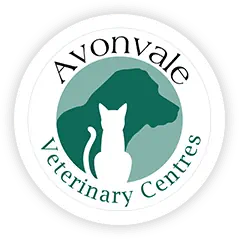An ever increasing number of pets in the UK are above their ideal bodyweight. Many people do not realise their pet is overweight or how much it can affect their health and well-being. It is part of our role at Avonvale to help educate and support owners and their pets during the weight loss process.
| Obesity can cause: | Signs that your pet may be overweight: | Factors that contribute to weight gain are: |
|---|---|---|
|
|
|
If you are concerned that your pet may be overweight, please speak to a Veterinary Nurse, who will be more than happy to advise you and help to get your pet started on a weight loss programme.
Your designated nurse will weigh your pet and set an ideal target weight. They will discuss your pet’s eating habits, advise you on how much food to feed and provide tips on how you can help to achieve weight loss, that fit in with your individual lifestyle.
Weight Loss for Rabbits
Rabbits need to eat frequently and starving them can cause health problems. Changing to a healthy diet of mostly hay will help them lose weight gradually. Allow your rabbit plenty of exercise and the weight will come off naturally. See our Caring for your Rabbit leaflet for more ideas for a healthy diet.
To keep rabbits healthy feed them hay adlib along with a pellet food rather than muesli/mixed food to avoid selective feeding. This can also be supplemented with a small amount of fruit and vegetables.
Exercise
Dog
To a dog, a walk is an all-round workout. It's important that your dog is exercised every day. Regular exercise will help him lose weight as well as keeping him fitter, healthier and happier. Extra long walks at the weekend can actually do more harm than good, especially if your dog suffers from arthritis.
Dogs are social animals, and no matter how much love you provide, it cannot make up for the interesting sights and smells they experience when they're out and about.
Regular walk - take your dog to the local park or just along the street.
Resistance walk - try to walk your dog on different surfaces like sand, shallow water, fallen leaves or on a rough surface.
Enhanced walk - use obstacles when you're out walking like benches, trees, ditches and logs for your dog to jump over, crawl under or balance on.
Fetch - throwing a ball or toy is great exercise for your dog, and you can make him work harder by doing it uphill. Don't throw sticks, though, as they can splinter and cause injury.
Swimming or hydrotherapy - ideal for dogs with arthritis or back problems. Ask a member of staff for more information.
Agility or flyball classes provide an extra form of exercise.
Cats
Healthy cats who spend a lot of time outdoors will get plenty of exercise by hunting, playing and exploring.
Overweight and indoor cats on the other hand, often suffer from lack of exercise. But exercising your cat is not difficult, and as well as helping them to lose weight, it makes a big difference to their health and happiness.
Power walking - try taking your cat out for a walk on a harness. While you're out, encourage your cat to jump and play using natural 'toys' like piles of leaves Toys - these help to encourage your cat to get moving 'Catch the Light' - shine a white light torch on the walls and let your cat play.
'Boxing' - let your cat play in a box or paper bag. This should always be done under supervision.
'Hunting' - put your cat's food in different places each day including on top of tall furniture .
Helping pets to lose weight can be difficult for a number of reasons. Below are a few tips to help you along your way.
- Avoid feeding table scraps and snacks as these can be very high in calories.
- Stick to the recommended daily allowance. It can be useful to weigh out the amount at the beginning of the day to avoid accidental overfeeding.
- Keep your pets in a separate room when preparing or eating your own meals.
- If you have several pets, feed them separately.
- Don’t leave any food lying around.
- Replace treats with verbal praise or a favourite toy.
- Ignore the begging.
- Finally, don’t lose faith!
For more information, why not visit our Weight Management page here.





